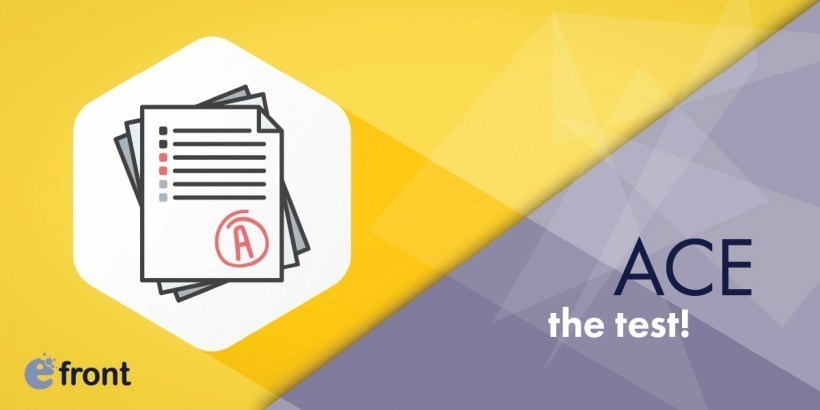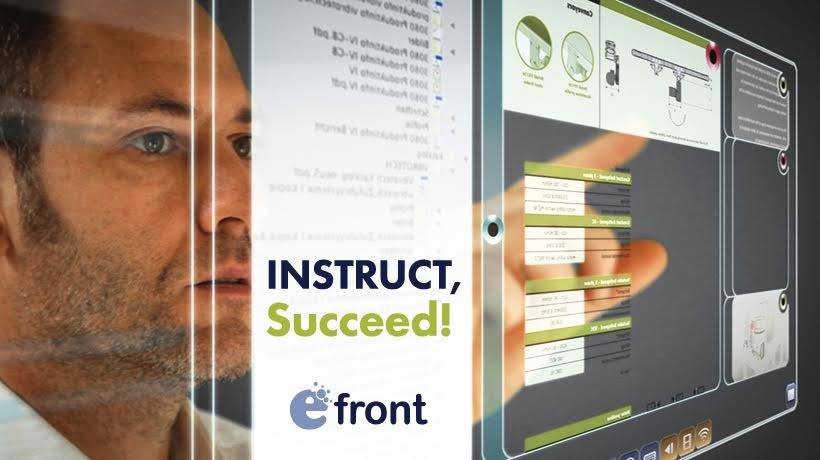Work Your Way Skills Management In eFrontPro
To lead people you first need to know them. This is as true in the business world as it is in politics, war, marketing, and generally ιn any other endeavor that involves working with a large number of people.
In business, in particular, your people are your company’s main asset; it’s not called a knowledge economy for nothing. But getting to know your talent and to fully take advantage of your employees’ skills well, and in a dynamic fashion, can be a daunting task.
eFrontPro, the popular Talent Development and Learning platform can be of great assistance here, helping you simplify and automate employee accreditation and skills management in a way that really makes sense and saves you time and effort. Which, coincidentally, is the very topic of this post.
Skills Management? What Is It, And Who Needs It?
Skills management, by a formal definition at least, is the "practice of understanding, developing and deploying people and their skills".
Behind this short description there is a multi-faceted process consisting of many steps:
- Identifying the skills that your company needs.
- Recording the skills that your employees have.
- Finding any gaps between the first two lists.
- Planning the development of your employees’ skills.
- Keeping track of employee progress.
- Using those skills correctly and efficiently.
- Promoting and compensating your employees based on their skills and their use of them.
- Repeating the process(es) as conditions and employees change.
As for the question "who needs skills management", the answer is really short: You. If you are running a company or organization of any considerable size, that is.
Obviously smaller companies (up to a few dozens of workers) do not have as much difficulty (or necessity) of tracking their employee skills.
Any company of a certain size and above (which doesn’t have to be that big: Even 50 or so employees might be too many for manual skills management), on the other hand, can benefit from skills management tools, especially those with a strong Talent Development-focused feature set like eFrontPro.
Proper skills management helps maximize the performance of your employees, and fully tap your workforce’s potential. Besides the obvious return of investment from this, it also helps keep your employees happier and more motivated (as they are hired, deployed, promoted and compensated better), thus reducing employee churn.
eFrontPro For Skills Management
What’s a skill?
In eFrontPro, much alike in real life, a Skill is any kind of job-related knowledge or professional expertise that an employee might have.
Skills are first-class entities in eFrontPro, just like Users, Courses, Units, Tests, and the like, which means they have their own configuration, can be applied to other entities (namely to Users), can be correlated with Tests and Surveys, can be tracked in Reports, etc.
eFrontPro lets you assign any Skill you want to your employees either manually or automatically (which we will get to shortly).
For a total overview of all Skills tracked in your company (whether assigned to some employee or not), you need to go no further than the Skills administration page. Skills are shown there in eFrontPro’s typical tabular (table-like) listing, along with the category each skill belongs to and the number of users that have that specific skill.
As is the case with all of eFrontPro’s administrative lists, you can click on any Skill on the list to see more information, edit it, or delete it. You can also create new skills (by clicking on the "+ Add Skill" button at the top), or export the list of skills in a Excel-native XLS or CSV format.
If you have too many Skills to display in a single page or two (as might be the case for larger organizations), you can also search among all Skills through the search/filter entry form at the bottom left.

As previously mentioned, Skills in eFrontPro may belong to a specific category. This is just so you can better find them and keep track of them if you have too many. It would look like this:
Languages/English
Languages/French
Languages/Chinese
Software/Word
Software/Photoshop
...
etc.
A Skill also might only pertain to a particular Branch (company department or facility), so, for example, when you assign Skills to your assembly line workers, you don’t see the same skill sets as you see for your accounting team.
Skills Assignment
To assign skills, you can either do so manually (e.g. upon hiring a new employee), by assigning them to a course (and thus having them be assigned to employees upon course completion) or by taking advantage of eFrontPro’s skill-gap discovery engine.
This last option lets you create custom tests and surveys, and use the provided answers to automatically assign specific Skills to the employees undertaking them. eFrontPro lets you choose whether a Skill will be assigned to an employee upon the successful completion of the whole Skills-test, or maybe after the successful answer to some specific question.

And since the platform comes with a full featured Corporate Training engine, eFrontPro’s skill-gap testing is smart enough to automatically suggest relevant courses and learning paths for employees that are shown to lack particular Skills (eFrontPro instructors can configure those suggestions upon creating a skills-gap test). Note that in the same context (training), certain skills can also be defined as prerequisites to taking a course.
Skills Management In eFrontPro: The Gist
In this post, we described eFrontPro’s Skills feature, its skills management capabilities and its Skills-Gap testing engine. While simple and intuitive to get started with, eFrontPro’s Skill Management features are surprisingly deep and powerful, especially combined with other other Talent Development features such as Jobs, Certificates, Reports, and Surveys.









